Pi Wars - the Raspberry Pi Robotics Challenge Competition
Follow articleHow do you feel about this article? Help us to provide better content for you.
Thank you! Your feedback has been received.
There was a problem submitting your feedback, please try again later.
What do you think of this article?
Pi Wars, the Raspberry Pi Robotics Challenge Competition, all began back in September 2013. I had been running the Cambridge Raspberry Jam for the past few months as a small event in room or two in different venues. I was happy with the way things were, but slightly frustrated at not being able to cater for more people due to the size of the rooms I had available. Fortunately, a friend of mine, Tim Richardson, had been attending the Jams and had started to get into the Raspberry Pi in a big way. He came on board with helping to organise the Jams and together we moved the event to a 200-person venue, the Institute of Astronomy, Cambridge. This enabled us to cater for many more people and, for the first time, to run workshops that could teach attendees programming, physical computing and essential skills.
Not long after, Tim asked me whether I’d even seen the BBC series Robot Wars. “Yes,” I replied, “I’m a big fan.” Then he asked me, “What if we could do that, but with Raspberry Pis?” That began us on this crazy journey of competitors, sponsors, judges, marshals and, of course, robots. Our first task was to work out exactly what form the competition would take. Neither of us, despite an affinity with Robot Wars, was interested in seeing robots bash each other to bits. Instead, we wanted to explore the idea of semi-intelligent, well-controlled robots tackling challenges that we would set. This non-destructive approach is what we think has made Pi Wars such a success. There’s something to be said for weapons and brutal hardware, but the robots in our competition would have to demonstrate something far more important: the capability to show the programming and hacking skills of the competitors.
We decided to split the work up between us. I would focus on communications, organisation, marketing and artwork. Tim would focus on designing and building the courses - a massive task that would require him to use almost all of his power tools and a great slice of his woodworking skill!
Our first competition, in December 2014, was held at the Institute of Astronomy and featured seven challenges: Robot Golf, Proximity Alert, Straight Line Speed Test, Three Point Turn, Line Follower, Sumo and the vastly-popular Obstacle Course. Some of the challenges were pre-announced, some, like the Sumo and the Obstacle Course were complete mysteries.
The Obstacle Course, 2014
Our second competition, held at the Cambridge Computer Lab in December 2015, was even bigger than the first. More competitors, bigger spectating crowds, a bigger venue and more prizes. We changed the way the competitors were grouped into categories: from the first year’s cost-based categories to size-based categories: bigger or smaller than an A4 piece of paper. We welcomed back previous competitors but made sure that the vast majority were newcomers and this proved to be a good mix. The courses were re-designed and re-built for the most part and looked a lot more professional. Gone were the table-top arenas and in were fully-designed and built courses. We replaced Robot Golf with Skittles and Sumo with Pi Noon (a robot-on-robot duel involving balloons and pins!). We should give credit where it’s due: the pun-ridden name of Pi Noon came from Clive Beale who used to work for the Raspberry Pi Foundation!
The Obstacle Course, 2015
Following 2014 and 2015, we realised that what we really wanted to do was to encourage more schools to take part. We had, rather naively, assumed that schools would build the construction of robots into their Computing curriculum. This proved to be a false hope - the National Curriculum is a rather tiresome, rigid thing and robots didn’t fit well into it. The school teams we had were generally of the after-school-club variety. We decided to try and encourage more clubs, so we moved the date of Pi Wars from December to April, thus giving the teams much more time after selection to prepare and code their robots.
And so we come to the 2017 competition. Out has gone Proximity Alert (where robots had to get as close as possible to a wall), out has gone the infamously difficult Three Point Turn. Our new challenges are Slightly Deranged Golf (a mysterious course involving a golf ball and several hazards) and the Minimal Maze (which has to be navigated cleanly and as fast as possible!). Tim has again been designing and building for all he’s worth (this time aided by a new laser cutter and more 3D-printed parts than ever before). I have been furiously typing out emails and organising everything in the background, as well as communicating with sponsors and our record number of 76 competing teams! Pi Wars 2017 is bigger and better than ever!
This year’s Minimal Maze design
We hope you can come and join us for Pi Wars from 1st-2nd April. Details can be found on our website - piwars.org - and tickets are available from Eventbrite. Spectators who are 16-and-under go free and for adults the cost is £5 per day or £7 for two days. We’re on the lookout for Judges and Marshals (who get their tickets for free); this is a great way to get involved and is also great fun!
Hopefully you’ve found this account of the origins and development of Pi Wars interesting. Any questions, please contact us through the Pi Wars website and we’ll get back to you as soon as possible!
Michael Horne & Tim Richardson


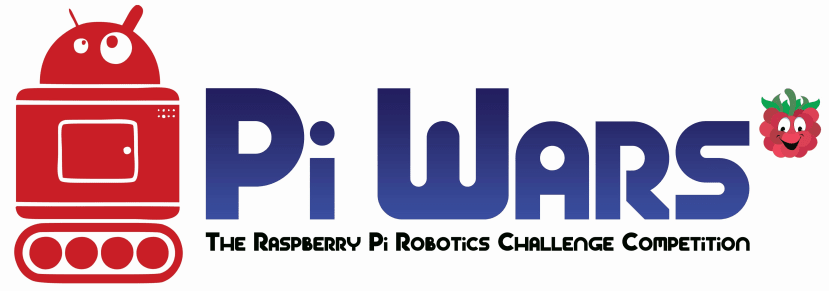
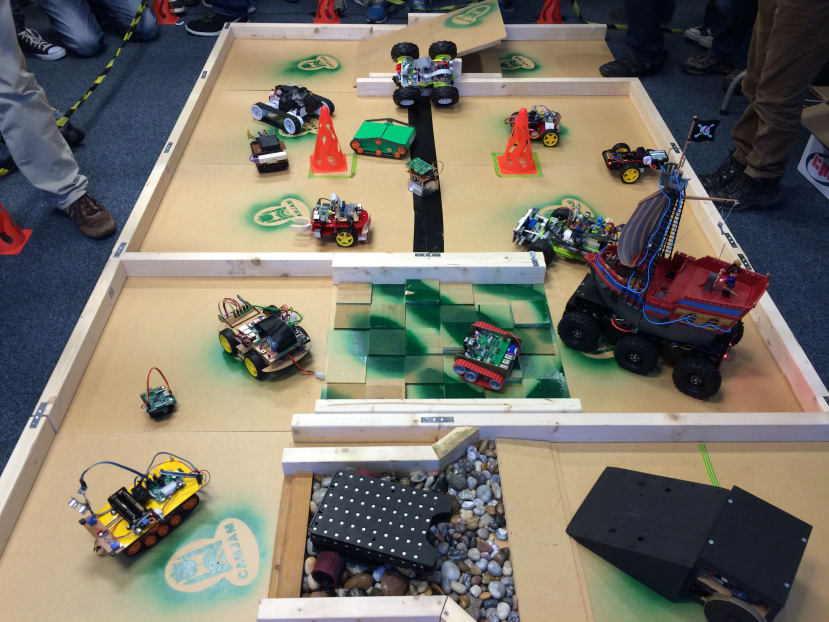
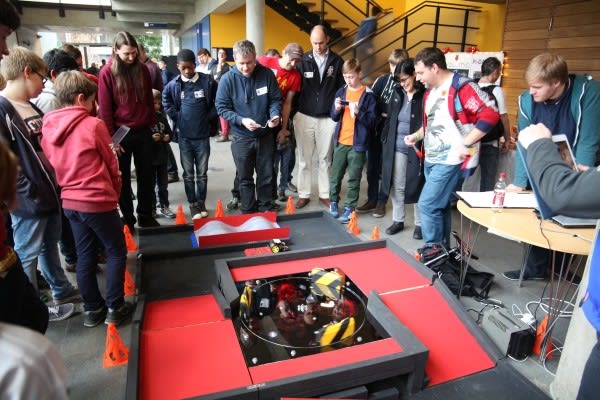
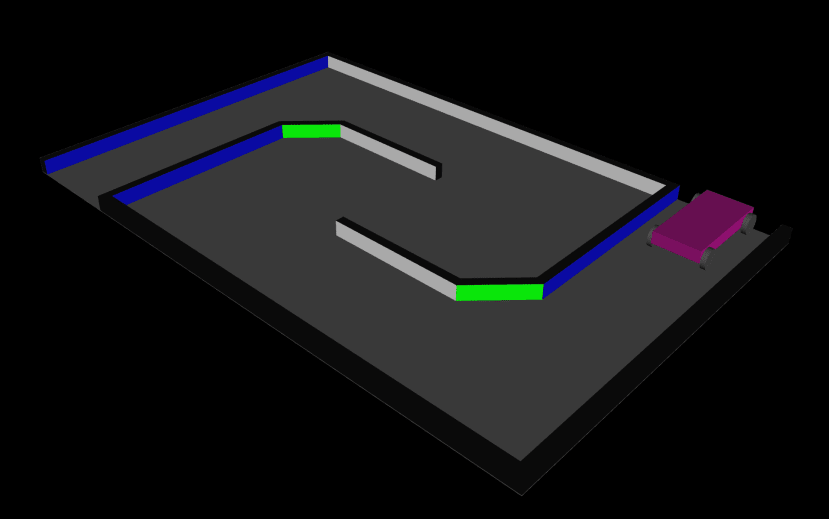
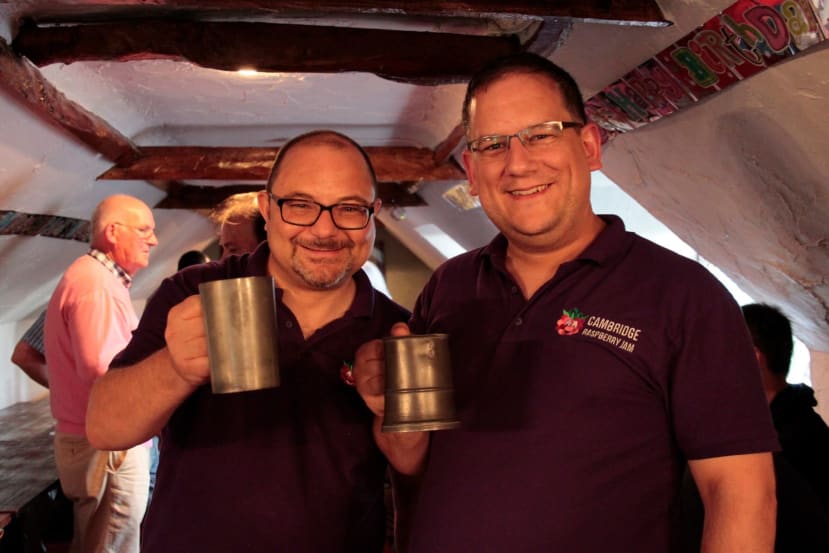
Comments